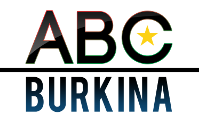The worst is never bound to happen
In my last newsletter I indicated why I believe that after the Touareg uprising, West Africa and Burkina Faso in particular, might well have to face yet another problem, the Fulani. However, I ended on an optimistic note, based on the following fact: Today the Fulani, who for a long time have lived confined to their communities, now wish to take their rightful place in public life in Burkina. They wish to be recognised as Burkinabè citizens to all intents and purposes and are prepared to make the necessary effort to do so. As already announced, here are a few suggestions, which could help invalidate the prophecy ”After the Touareg problem, it is the Fulani problem waiting to happen in this region.”
1. The great majority of the adult Fulani population is illiterate. Today many of their children still do not go to school. Nevertheless, there are many Fulani women asking to enlist in literacy courses in their language, the Fulfuldé.
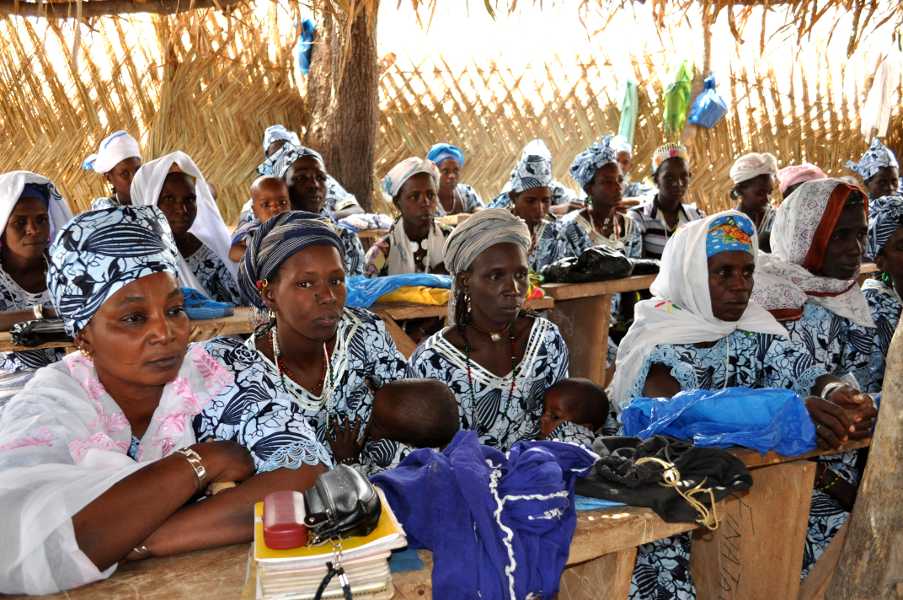 Therefore I suggest that positive discrimination of women be applied to Fulfuldé literacy classes for adults ; that an inquiry be carried out in all the counties to track Fulani communities wishing to organise literacy courses and that provisions be made as quickly as possible to respond to the demand.
Therefore I suggest that positive discrimination of women be applied to Fulfuldé literacy classes for adults ; that an inquiry be carried out in all the counties to track Fulani communities wishing to organise literacy courses and that provisions be made as quickly as possible to respond to the demand.
Having realised from experience that once a woman has learnt to read and write she will send her children to school, we foresee, that the rate of school attendance of Fulani children would rise to the national average in a few years time, when their mothers have become literate.
2. When access to grazing land is available, the migration of herds will make it possible to provide optimal feed for the animals all year round and will contribute to secure accurate feeding at reduced cost. Consequently the migration of cattle is a necessity and will remain so for a long time to come. ”Therefore the physical planning of grazing land is an important part of the programmes of the Ministry of Animal Resources”. (Strategies for planning, safeguarding and valorising pastoral land and equipment” – August 2008, p.8). This choice must be respected by all and requires the participation of the rural communities. It is entirely in the interest of pastoralists to fully cooperate in the establishment of such areas and see to it that they are respected. Their active participation in the Village Development Committees should enable them to work to that effect.
3. Consumers in Burkina tend to increasingly appreciate and demand local milk (and its other products such as yoghurt, dégué, gapal and cheese). It would be a shame if only the modern large dairy farms were to benefit from this opportunity. Numerous examples show that it is entirely possible to set up mini dairies near small towns. Every rural community could study the feasibility of such a project.
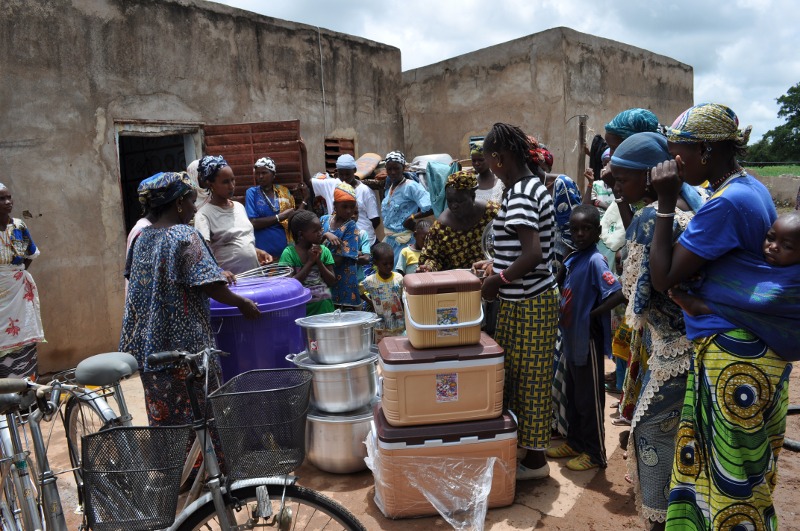
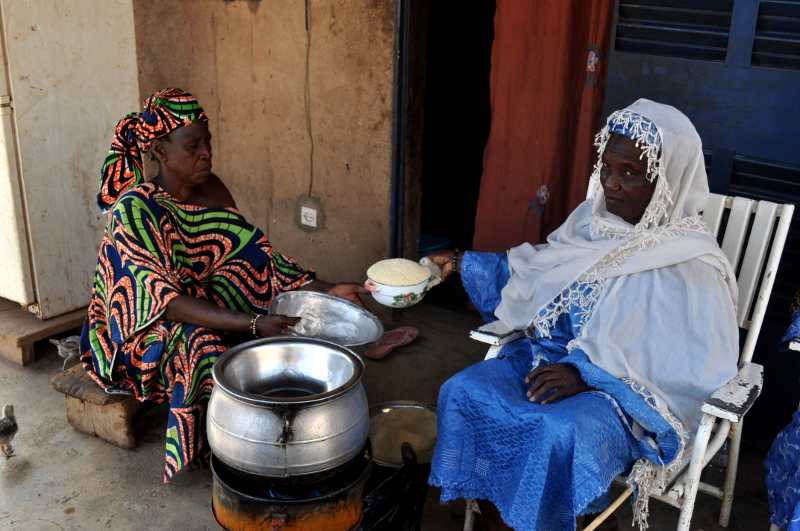 A widow in the Abdalaye quarter of Ouagadougou feeds her cow and Goudali calf in this way (adding a small amount of fodder) and is able to obtain 8 litres of milk per day (instead of 2 or 3). A farmer near the monastery in Koubry also feeds his zebu cow and calf with soy and soy milk, plus half a 12 kg bundle of hay a day for the cow) and retrieves 6 litres of milk daily. The widow and the farmer have taken part in a training course in preparation for turning to soy. It would be a good idea to extend this kind of training to traditional pastoralists, in particular those who deliver milk to a dairy.
A widow in the Abdalaye quarter of Ouagadougou feeds her cow and Goudali calf in this way (adding a small amount of fodder) and is able to obtain 8 litres of milk per day (instead of 2 or 3). A farmer near the monastery in Koubry also feeds his zebu cow and calf with soy and soy milk, plus half a 12 kg bundle of hay a day for the cow) and retrieves 6 litres of milk daily. The widow and the farmer have taken part in a training course in preparation for turning to soy. It would be a good idea to extend this kind of training to traditional pastoralists, in particular those who deliver milk to a dairy.
5. In addition courses could be set up on the harvesting and stocking of fodder plants. All this is entirely possible. The FONAEF (Fund for literacy classes and informal education) could set aside part of its funds for courses of this kind (Fulfuldé literacy, feeding of dairy cows and calves, harvesting and stocking of fodder plants). To this one might add joint training seminars for pastoralists and farmers to discuss causes of conflict, but also and primarily to create effective contracts and alliances between them. Pastoralists can bring cattle and manure to help farmers maintain good soil, farmers can offer herders dry harvest residues of groundnuts, beans, soy or nébié …
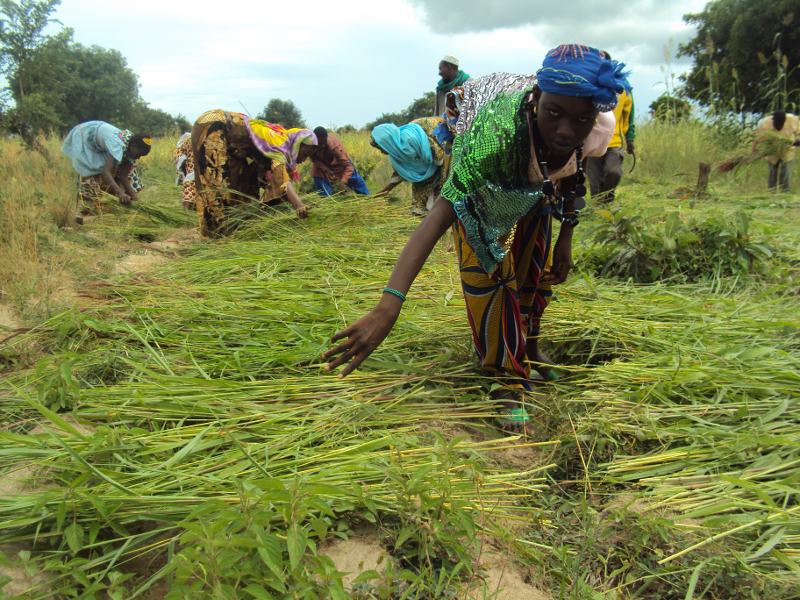
”After the Touareg, it will be the Fulani problem turning up in this region …”
Is working together not small price to pay for social peace?
Koudougou, May 2nd, 2012
Maurice Oudet
Director SEDELAN
